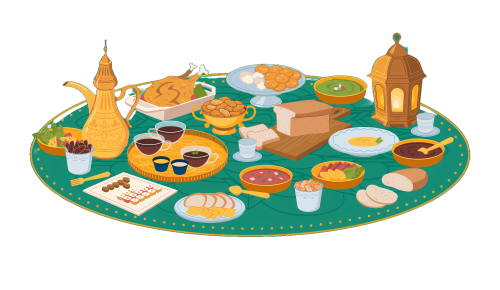
Ramadan. It is that time of year again where you are checking the time more than you are checking snapchat, where you are talking less to those around you in fear of scaring them off with your breath, and where you are basically receiving all sorts of questions from those around you.
During this time, a lot of our non-Muslim friends and colleagues ask us why we fast, and the most common answer that most of us give is: to feel empathy with the less fortunate. Yes, this is true, but what does the Qur’an really tell us about fasting?

In surah Al-Baqarah [2:183] Allah (swt) says “O you have believed, decreed upon you is fasting as it was decreed upon those before you that you may become righteous.” This verse instructs us to fast during the month of Ramadan by way of our imaan. It is teaching us that the purpose isn’t to lose weight or show off, but it is teaching us to willing fast out of the sincereness of our faith. Secondly, the verse also mentions that fasting will help attain righteous (taqwa). But what does attaining righteousness really mean? When we fast, we enter a spiritual state of mind that teaches us to be obedient to our Creator. This means forbidding what is wrong and engaging in what is right. Think of it this way, by controlling your desire for food (something that you cannot truly live without), you are also training your mind on how to control your desires and temptations (things your are able to live without).
This Ramadan, really take sometime to ask yourself why you are fasting. Yes, fasting does help us empathize with the less fortunate. But why not just, spend a day with a homeless? Yes, fasting does help us refrain from becoming angry, but why don’t we just take some anger management classes? Why is it that we fast for a month during a certain period every single year? As you see, there are many objectives to fasting, but the number one objective is to please our Creator. May Allah (swt) accept all of our fasts, forgive all our sins, and increase our imaan. Ameen.

Subscribe for weekly posts and more here!










